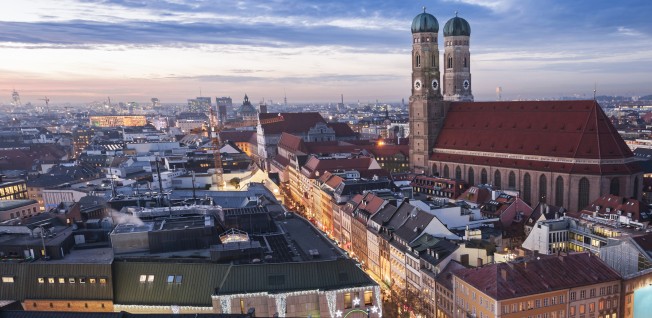From East to West: What Does It Mean to Feel Welcome?

“He’s not angry, it’s just German” — if I had a euro for every time I’ve heard that gem of expat wisdom since moving to Germany three months ago, the beers would be on me! Germany isn’t my first experience living abroad, and it got me thinking — what does a warm welcome really look like?
A serial expat, I’ve lived in four countries over the past five years. Despite the frantic buzz and being over 9,000 km from home, Hong Kong was the place that felt most like home. You could walk down the street and hear Dutch, then French, then Cantonese all in the space of a few minutes.
What made Hong Kong feel so welcoming? Well, for almost everyone who’d settled there, they were a long way from home. Far from friends and family, you’re forced to throw yourself in at the deep end, and create new support networks.
Which Countries Are Most Welcoming?
So where should you go for a warm welcome? According to the InterNations Expat Insider 2016 survey, the top ten easiest countries to settle in are a diverse bunch — from Romania to Uganda, between them they span six continents! Malta and Taiwan both topped the charts for feeling welcome and friendliness, but for general ease of settling in, Mexico was the overall winner.
Apparently I’m not the only one feeling the German cold shoulder: the survey also found that out of 67 countries, Germany ranked 49th in terms of making expats feel welcome and 55th for general friendliness. Those moving to Saudi Arabia and the Nordics can expect a similarly frosty reception.
The Underlying Cause
With such big differences between the friendliest countries, perhaps it’s less about where you are, and more about you. Feeling a sense of alienation or that you’re not wanted is, after all, classic culture shock. Three months in, I am a textbook example of the “Negotiation” stage. The initial delight with lederhosen has dwindled, and the frustration of not being able to communicate in the wide variety of new situations I find myself in on a daily basis has taken over.
Being new means getting things wrong — and accidentally winding up the locals! Baffled on a daily basis, so far I’ve managed to incur the wrath of an elderly lady on an escalator, book a doctor’s appointment in the wrong month, and miss my U-Bahn stop for work countless times. I’m officially a newbie, and it shows.

Stereotypes and Getting Settled
Dropped into a new environment, we often find ourselves using stereotypes to make sense of the world around us. While I presume the lady on the escalator talking to me in rapid German must be angry and unfriendly, she presumes that I’m yet another “typical Brit” who only speaks English and is here for the beer — thanks Oktoberfest!
Like many things, getting settled takes time. As you get to know a place, experience takes the place of stereotypes. Ultimately, I stayed in Hong Kong over two years. No wonder looking back it seems friendlier — I had made it my home and still think about it with those home-tinted glasses on. It’s easy to forget that feeling at home is a process, there’s no shortcut for culture shock.
Overcoming the Bavarian Blues
What does that mean for my current Bavarian blues? Reading about culture shock, I can see that a warm welcome is really in the eye of the beholder. Like the beloved pretzels, I’m certain that Germans, though sometimes salty on the outside, have a warm squishy center that I will see more and more of as I get to know Munich!
Wherever you choose to call home, ultimately you get back as much as you put in. The more you get involved in your new country by meeting people, going to events, and trying new things, the more you’ll understand the people and the culture. Pass me that dirndl — I’m off to find a beer garden!











